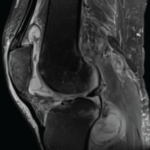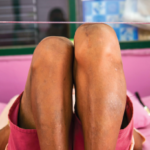Experts discuss how rheumatologists must consider the psychosocial aspect of care in the decision-making process for women when addressing their reproductive health needs, in addition to medication safety.

Subcategories:Axial SpondyloarthritisGout and Crystalline ArthritisGuidelinesMyositisOsteoarthritis and Bone DisordersOther Rheumatic ConditionsPain SyndromesPediatric ConditionsPsoriatic ArthritisRheumatoid ArthritisSjögren’s DiseaseSoft Tissue PainSystemic Lupus ErythematosusSystemic SclerosisVasculitis

Experts discuss how rheumatologists must consider the psychosocial aspect of care in the decision-making process for women when addressing their reproductive health needs, in addition to medication safety.

Two experts discussed ongoing difficulties in diagnosing autoinflammatory disease, & promising new studies that point to possible genetic roots of autoinflammatory disease.

Three experts discuss the ins and outs of using magnetic resonance imaging to diagnose axial spondyloarthritis, particularly in individuals who lack clear clinical symptoms indicative of disease.

NIH investigators describe key features and genetic causes of Mendelian interferonopathies, & treatment approaches that may indicate the efficacy of IFN inhibition.

Experts discussed the latest knowledge on B cell disease processes, and what it might mean for future B cell depletion therapies.
Reuters Staff |
NEW YORK (Reuters Health)—Barrett’s esophagus is common in women with systemic sclerosis or scleroderma (SSc) and is often accompanied by dysplasia, according to the largest study on prevalence of Barrett’s esophagus in women with SSc. In Barrett’s esophagus, chronic gastric reflux causes the lining the esophagus to be replaced by metaplastic cells that may lead…

Patients who do not fulfill classification criteria for systemic lupus erythematosus (SLE) can be referred to as having probable SLE (pSLE). These patients can be identified with cell-bound complement activation products (CB-CAPs), according to a recently published study in Arthritis & Rheumatology.1 The findings are relevant because the existing Systemic Lupus Erythematosus International Collaborating Clinics…

Bradley Bohman, MD, & Jawad Bilal, MBBS |
Tumor necrosis factor-α inhibitors (TNFi’s) have emerged as an integral part of therapeutic strategies for several rheumatic diseases. TNF-α is a pro-inflammatory cytokine implicated in the pathogenesis of rheumatoid arthritis (RA), seronegative spondyloarthropathies and inflammatory bowel disease (IBD). It also plays a central role in the immune response to mycobacterial infection. Many biologic agents, particularly…

Abdollah Shams-Pirzadeh, MD, PA, FACR, & Kimberly Retzlaff |
Humans are not perfectly symmetrical. Almost everyone has one ear that’s higher or one foot that’s larger than the other. Similarly, leg lengths are often not quite the same. There is disagreement as to what constitutes a clinically significant difference, but some studies suggest that leg length discrepancy (LLD) can lead to osteoarthritis (OA) of…

Tamar Rubinstein, MD, Natoshia Cunningham, PhD, & Andrea Knight, MD, MSCE |
It is nine months into the COVID-19 pandemic in the U.S. and the third wave is upon us, overwhelming hospital systems in many states across the country. But the alarms are being sounded for another looming pandemic as well. As early as spring 2020, significant increases were documented in the prevalence of depression and anxiety,…